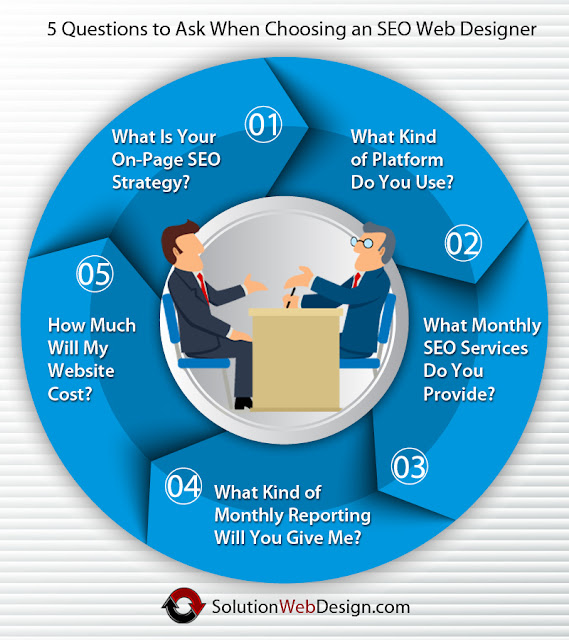8 Warning Signs Your Website May Have Been Affected by Negative SEO
 |
|
8 Warning Signs Your Website May Have Been Affected by Negative SEO
|
Negative SEO is the act of using blackhat operations that go against Google's guidelines in a malicious effort to diminish the success or effectiveness of a website's SEO properties by altering or disabling them and is most commonly performed by a competitor or enemy.
While some malicious SEO tactics go virtually unnoticed, some of the most common signs that your website has been affected by negative SEO include:
Unfamiliar Backlinks
While some malicious SEO tactics go virtually unnoticed, some of the most common signs that your website has been affected by negative SEO include:
Unfamiliar Backlinks
The most widely used type of negative SEO tactic is blackhat backlinks.
During this process, the attacker will create, obtain, or purchase multiple, often legitimate looking backlinks, and then point them to the website of attack for the sole intent of creating an excessive number of backlinks and making it appear as though the website owner created them.
These links can be forum spam, blog spam, guest blog spam, or any other type of spam. Some tactics are all out blatant such as "Buy Rogaine" or "Payday Loans," while others are more subtle to make it appear as if it was purposely created by the website owner.
The point here is if Google were to perform a manual audit and notice tons of insignificant backlinks containing irrelevant content, it would raise an alert to Google and ultimately lead to a penalty.
Missing Backlinks
In some instances, a malicious SEO will remove your backlinks by emailing websites that link to yours, often using a companyname@gmail.com or companyname@yahoo.com type of address, and request that they delete the link to your site.
What this essentially accomplishes is all links to your website are removed simultaneously. In the meantime, you have no clue of the occurrence until your rankings have already been compromised.
Your Website Disappears
In some cases, an attacker will perform more dangerous actions so that Google removes your website altogether from the search engines. For instance, someone may inform Google that you have posted content that belongs to them, which in many cases, can result in an automatic removal of your page for at least ten days.
Strange Sites Redirect to You
Another common malicious SEO tactic is redirecting a penalized site to yours. While not all redirects are bad, you should beware if you notice that you have three sites redirecting to you one week and then the next you have 20 or 200, then this could be a sign of a problem.
You should also beware of 301 and 302 redirects, which involves a competitor redirecting your site to theirs so that they can steal your traffic and search engine ranking.
You Encounter Server Issues
There are various ways a sophisticated attacker can sabotage your server and mask it cleverly without your knowledge, including removing stuff like server compression, caching, CDN's, etc., move essential files around, or embed large files to slow your load time. They may also rel=nofollow all of your inbound and outbound links or add a large number of visible CSS and so on.
While none of these tactics will trigger Google alerts, they could significantly lower your rankings over time.
You are Suddenly Banned From AdSense
Google AdSense is a chief source of income for many website owners; therefore, an attacker may attempt to get you kicked out with a click attack campaign.
By going to your page and profusely clicking on ads, it raises suspicion to Google that you are unnaturally trying to increase your earnings, in which case Google will boot you out of the program without notification.
Duplicate Content
Sometimes a savvy competitor may steal your content and post an exact version on their own site, so Google has a hard time determining which is the original.
As Google filters the duplicate content, it will only rank the version it saw first. If Google deems your competitor's content as the original, you will miss out on valuable rankings. Furthermore, Google views duplicate content as a signal for probable spam sites, which can also damage your backlink footprint.
Therefore, a malicious competitor may keep watch of your site, sometimes using an RSS feed, and as soon as you post something new, steal your content and post an exact version on their own page to make it harder for Google to recognize the original.
Your Brand or Reputation is Tarnished
In some cases, an attacker will post an influx of negative reviews or comments on reputable sites like Yelp, Google, or Facebook, etc., in an attempt to tarnish your brand's reputation, which in turn lower your rankings.
At the other end of the spectrum, an attacker may review bomb, or point a large number of 5-star reviews at your business so it appears that you have paid for them, which could also negatively affect your rankings.
Lastly, an attacker may even report your website's "black hat" tactics to Google to tarnish your reputation.
Fortunately, blackhat tactics do not have to be tolerated. In fact, legal recourse is permitted for such acts. In the meantime, there are steps you can take to combat against malicious SEO, including disavowing links, revising your SEO properties, and more, some of which can be performed on your own or with the aid of a reputable Local SEO company.
During this process, the attacker will create, obtain, or purchase multiple, often legitimate looking backlinks, and then point them to the website of attack for the sole intent of creating an excessive number of backlinks and making it appear as though the website owner created them.
These links can be forum spam, blog spam, guest blog spam, or any other type of spam. Some tactics are all out blatant such as "Buy Rogaine" or "Payday Loans," while others are more subtle to make it appear as if it was purposely created by the website owner.
The point here is if Google were to perform a manual audit and notice tons of insignificant backlinks containing irrelevant content, it would raise an alert to Google and ultimately lead to a penalty.
Missing Backlinks
In some instances, a malicious SEO will remove your backlinks by emailing websites that link to yours, often using a companyname@gmail.com or companyname@yahoo.com type of address, and request that they delete the link to your site.
What this essentially accomplishes is all links to your website are removed simultaneously. In the meantime, you have no clue of the occurrence until your rankings have already been compromised.
Your Website Disappears
In some cases, an attacker will perform more dangerous actions so that Google removes your website altogether from the search engines. For instance, someone may inform Google that you have posted content that belongs to them, which in many cases, can result in an automatic removal of your page for at least ten days.
Strange Sites Redirect to You
Another common malicious SEO tactic is redirecting a penalized site to yours. While not all redirects are bad, you should beware if you notice that you have three sites redirecting to you one week and then the next you have 20 or 200, then this could be a sign of a problem.
You should also beware of 301 and 302 redirects, which involves a competitor redirecting your site to theirs so that they can steal your traffic and search engine ranking.
You Encounter Server Issues
There are various ways a sophisticated attacker can sabotage your server and mask it cleverly without your knowledge, including removing stuff like server compression, caching, CDN's, etc., move essential files around, or embed large files to slow your load time. They may also rel=nofollow all of your inbound and outbound links or add a large number of visible CSS and so on.
While none of these tactics will trigger Google alerts, they could significantly lower your rankings over time.
You are Suddenly Banned From AdSense
Google AdSense is a chief source of income for many website owners; therefore, an attacker may attempt to get you kicked out with a click attack campaign.
By going to your page and profusely clicking on ads, it raises suspicion to Google that you are unnaturally trying to increase your earnings, in which case Google will boot you out of the program without notification.
Duplicate Content
Sometimes a savvy competitor may steal your content and post an exact version on their own site, so Google has a hard time determining which is the original.
As Google filters the duplicate content, it will only rank the version it saw first. If Google deems your competitor's content as the original, you will miss out on valuable rankings. Furthermore, Google views duplicate content as a signal for probable spam sites, which can also damage your backlink footprint.
Therefore, a malicious competitor may keep watch of your site, sometimes using an RSS feed, and as soon as you post something new, steal your content and post an exact version on their own page to make it harder for Google to recognize the original.
Your Brand or Reputation is Tarnished
In some cases, an attacker will post an influx of negative reviews or comments on reputable sites like Yelp, Google, or Facebook, etc., in an attempt to tarnish your brand's reputation, which in turn lower your rankings.
At the other end of the spectrum, an attacker may review bomb, or point a large number of 5-star reviews at your business so it appears that you have paid for them, which could also negatively affect your rankings.
Lastly, an attacker may even report your website's "black hat" tactics to Google to tarnish your reputation.
Fortunately, blackhat tactics do not have to be tolerated. In fact, legal recourse is permitted for such acts. In the meantime, there are steps you can take to combat against malicious SEO, including disavowing links, revising your SEO properties, and more, some of which can be performed on your own or with the aid of a reputable Local SEO company.
Additional Resources
- Negative SEO: Should You Be Worried? If Attacked, What Should You Do? -MOZ
- How to Protect Your Website from Negative SEO - Kissmetrics
About the Author
Craig Corbel is the Vice President of Marketing at Solution Web Designs, a leading web design and marketing agency serving small and mid-sized businesses.



Comments
Post a Comment